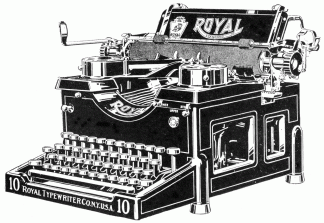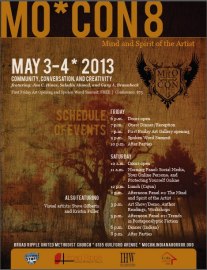 As writers, we’re inclined to devote much of our time in the pursuit of our main objective and that’s to write. Most writers make lousy business people, unless their background is in a business related field.
As writers, we’re inclined to devote much of our time in the pursuit of our main objective and that’s to write. Most writers make lousy business people, unless their background is in a business related field.
We are imaginative people who have a passion to create, so we tend to be oblivious to the business of writing. However, one of the first things that writers need to understand is that they can write eight million stories, but if no one knows about them they won’t get published and no one will read them.
There are many reasons that it is necessary for writers to create a platform. The most basic reason is to inform the public—your potential audience—about your writing. However, the concept of a platform is a bit deeper than merely letting people know you’re a writer, it’s also your ability to personally sell books through:
- Your own individual merit
- Networking—personal and professional connections
- Media outlets which can be utilized to sell your books
How well people know you and know of you, is extremely important as it relates to establishing a platform.
Well before I signed the contract for my first novel and short stories, I began using as many resources as I could think of to let people know that I was a writer and I had work to sell!
I instinctively got out in front of creating a platform for myself and my writing. Mostly I was simply geeked about the idea of people reading my work. Now, I am developing, maintaining and utilizing my platform for more focused reasons.
For the purposes of this blog post, I will assume that most of my readers are new writers or those who are just now accepting their calling. Although anyone, at any stage in their writing career needs to create a solid platform—if they haven’t already—and could benefit from the information contained here.
The following is a list of the most basic and common building blocks necessary for creating a platform.
- A website and/or blog—the goal is to build and maintain a large and loyal readership
- Social media—this is one of the most important aspects of building a platform as it allows for the most immediate and wide-reaching exposure you’re likely to get
- Blog posts—this is how you are able to relate your writer’s journey to your readers and help them to learn from your experience(s)
- An e-newsletter and/or mailing list—this helps you to maintain your readership and keep them informed of important info pertaining to your writing
- Guest post on the blogs of other writers—this is a way for you to broaden your readership and outreach
- Memberships in writing organizations—this helps to establish your standing and credibility within the writing community
- Media exposure—writing articles for media outlets, public speaking and media appearances (here the BIGGER the better)
While not all of these components are going to be relevant to you and/or necessary, they are the most important to consider. In today’s market and society, a website/blog, mailing list and social media are the three most important building blocks to consider in my opinion. These three components are the ones which will account for the maximum amount of exposure you get and the farthest reaching attention you receive.
It’s important to understand that building a platform takes time and effort.
This doesn’t happen overnight!
Developing a following/readership takes perseverance and dedication. It is a continuing effort which happens daily.
The amount of effort and foresight you put into it, is directly indicative of the gains you get out of it. Simply creating a website/blog and being on Facebook or twitter doesn’t constitute having a platform.
Here are some helpful anecdotes for defining just what platforms are:
“I have a simple formula for platform: Authority + Network = Platform.”
~Roseanne Wells (Marianne Strong Literary Agency)
“A platform is the people who know and love you and your writing now, as opposed to all those hypothetical people that will know you once your book is bought and you get motivated to do all the social media stuff…built-in audience.”
~Meredith Barnes (formerly of Lowenstein Associates, Inc.)
“A platform showcases the experiences you’ve had that qualify you as an expert in your field, which advocate your successes and serve as a vehicle for your publicity.”
~Bernadette Baker-Baughman (Victoria Sanders & Associates)
Simply writing your novel or short story isn’t enough. Even getting it to the publisher or self-publishing isn’t enough. You have to establish an identity/brand, own your marketability and work diligently to cultivate your readership with every opportunity available.
In closing, I’d like to encourage any writer—new or established—to consider taking the time and making the effort to build and maintain a solid platform. It is a highly essential component of selling your books/stories and connecting with loyal and well entertained readers.






